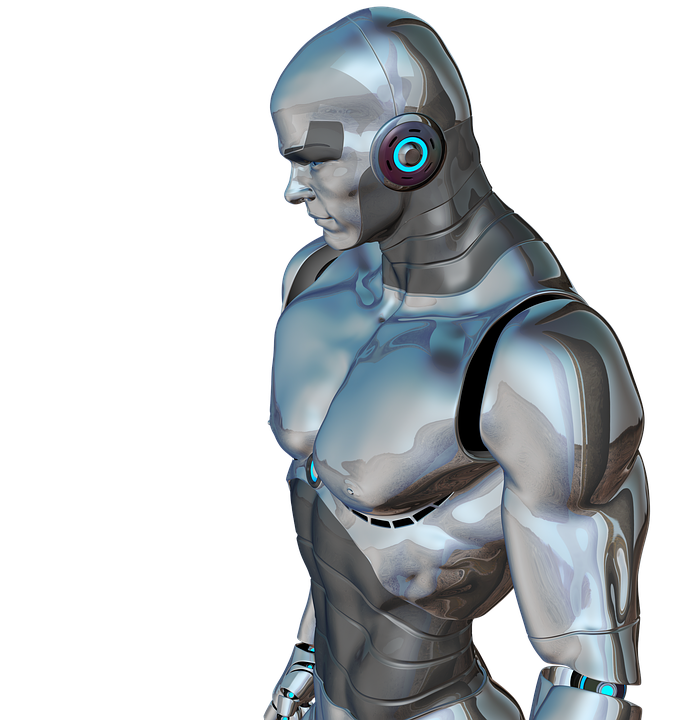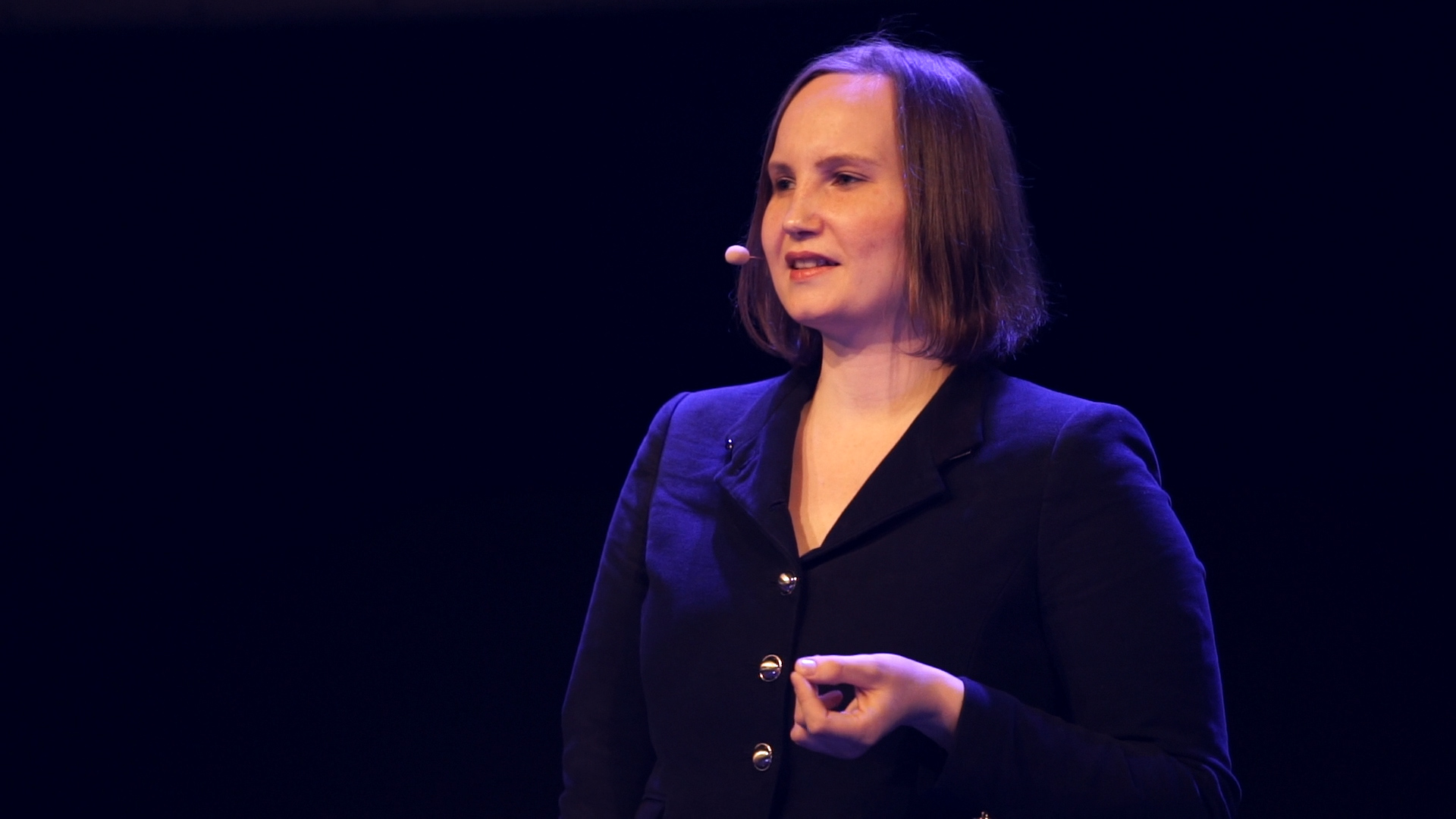It´s predicted that a whopping 2 billion jobs could be lost to robots by 2030. A pressing issue is thus how exponential technologies will transform the labour markets and, for us Norwegians in particular, the effects they will have on our world-renowned welfare programs. There have been calls for social basic income, but futurist Nell Watson from Singularity University, doesn’t believe the solution is economically feasible. However, she does have another solution that might be.
During this years SAP-conference in Oslo, at her last stop on her “Nordic-public-speaking-tour”, I sat down with Eleanor “Nell” Watson to have at talk about exponential technologies and the effects it will have on the world.
Additionally to doing public speaking on artificial intelligence (AI) and technologies, Watson is also an entrepreneur, engineer, writer, and staff member at the Silicon Valley think tank Singularity University.
So what does the future holds, as we are entering a new era “beyond anything we´ve ever seen before”?
Well, what we don´t need a futurist to tell us, is that machines, AI and robotics are rapidly changing our society. If it´s for the better or worse however, is yet to find out. As Watson says: “The robots can liberate but also captivate at the same time”. On one hand, machines enables automated intuitions. Almost anything that humans do a machine can now do at a superhuman level. For example, last week InnoMag interviewed the Norwegian Google director, Jan Groenbech who believes AI will crack the cancer code before scientists will. If that prediction turns out to be true, it will be a tremendous milestone for anyone who is directly or indirectly affected by cancer – in other words almost everyone. On the other hand, this might be the end of jobs for people working with cancer in any shape or form.
In fact, it is estimated that as much as 2 billion (!) jobs will be lost to robots and according to Watson, it´s the middle section of workers that will be affected the most.
– There are thus calls for universal basic income, but I don’t know if that’s economically feasible to tax people that still have jobs to pay for the rest. However there is a potential interesting solution, which .is something called distributed autonomous organizations.
Watson explains that these organizations are built on blockchain technology, which is the base engine of bitcoin. For those who don´t know what blockchain is, blockchain enables you to create so-called smart contracts, which are contract that will automatically self execute at a certain date or if certain conditions have been met.
– Now a distributed autonomous organization is basically a basket of smart contracts that has some AI in the middle and human beings at the edges. This means that the AI can pay human beings to do work for it and pay for it´s own server fees and that sort of thing – in other words it´s basically an AI-controlled business entity.
– Now if you have an AI controlled business, you can tell it to go make profit and trade in the marked and thereby bring value to it, just like any other business. This means that you can have shareholders that actually receive diffidence from that entity. So, in other words, your AI controlled business can participate in the free marked, generate wealth and share it with human beings. And I find that to be a better economical solution instead of taxing Peter to give to Paul.
How do you become a part of the organization?
– Maybe you invest, maybe its just created as an open source solution for the good of the global community.
So in a way you see it as being owned by the government?
– Possibly, but it can also just be owned by the commons. You see, we are likely to see a limited form of personhood for machines and I don’t mean in the sense of human rights or such, but rather in the corporate personhood. Like, we don’t give constitutional rights to corporations, but we do enable them to hold property, to sue and be sued – which is actually a privilege because it means that the organization is responsible for its actions.
When do you think we will see the first distributed autonomous organizations?
– I believe it will be by the end of this decade.
And where do you see it most likely to be started?
– In the Nordic nations, Norway perhaps for a couple of different reasons. Firstly, Norway has a wonderful culture of open source technologies and I also see Norwegians embrace and adapt to new technologies very quickly. Secondly, you have a very strong world-renowned welfare program. I´m sure everyone want´s to maintain those, but it can be difficult. Distributed autonomous organizations may thus provide the answer that people are going to be looking for very strongly.


AI – a threat to human society?
When Watson isn’t travelling the world to educated people about exponential technologies, she is working extensively on developing the frameworks of AI to make it as safe as possible through the project OpenEth.org.
Are machines a potential existing threat to human society?
– Yes, but paradoxically I believe the risk is greater if we try to force control over machine intelligence. I hear the C world, and no, not that C word, all the time. Take children or pets for example, we want to keep them safe and from causing harm to others, but preferably we don´t want to have them tied to a leach in order to do so. I think we need to have a similar attitude to machine intelligence. We need to encourage and make them flourish rather than trying to restrict and enslave them.
– Let´s say you have a really nice and cuddly well-behaved dog. Do you think that it would change in to a monster trying to take over the world if it suddenly had an IQ of 250? No, it depends on how it was raced. That’s why I´m working on these issues, so that it can respond to social and cultural norms but in no condition can be abused into a bity dog.
Recently Elon Musk, the founder of Tesla and Space X, founded a new startup called Neuralink Corp, that is working on technologies that connect computers to brains in order for humans to survive in a world dominated by AI. What do you think about his latest project?
– What I find very interesting is connecting a human brain with another human brain via the mediation of machines in the middle. Imagine that you could feel the effect you had on others, that you could feel their emotions directly with an immediate impact. Wouldn’t that make a much more empathic society? Wouldn’t that be instant karma if you did something mean to someone? I believe that would change the game and a lot of the rules we have in our society. That’s really what this technology enables. Even more so than having the Internet connected to your brain, which is cool and all, but its not going to change the human condition – this will.
However, despite being concerned about the impact AI can have if it´s not developed within the right set of frameworks, Watson is more concerned about the potential harm that will come from other human beings.
– You see, we´ve only speculations about the future of machines intelligence, but we have so many example throughout history of what happens when people´s beliefs and identities have been reshaped by new discoveries. When Galileo Galilei discovered that the world does not revolved around the earth, it lead people to question what other things they´ve been taken for grated and over the years that lead to revolutions and reformations that caused a massive amount of cultural strife. In the late 19th century, when we discovered that we were not necessary made by god and his image, that we might be descendent from apes, it was a narcissistic injury to our species and it lead to a certain amount of nihilism that I think contributed to the two great world wars we had last century.
– My greatest fear of machine intelligence is thus that it will tell us truths about ourselves that we do not want to listen to. That it might show us that a lot of the values and beliefs and morals that we hold so dear to ourselves may in fact not be as cohesive as we would like to think. To a machine of logic, there is no such think as inconsistency. And I think when the machines starts to point out the glaring inconsistencies in our society that make up our civilization, that’s when the pitchforks and burning torches comes out, which will lead to a schism in our global society were some people adopt the new values where other people do not. And unfortunately, I believe that will lead to yet another round of strife in the world.









